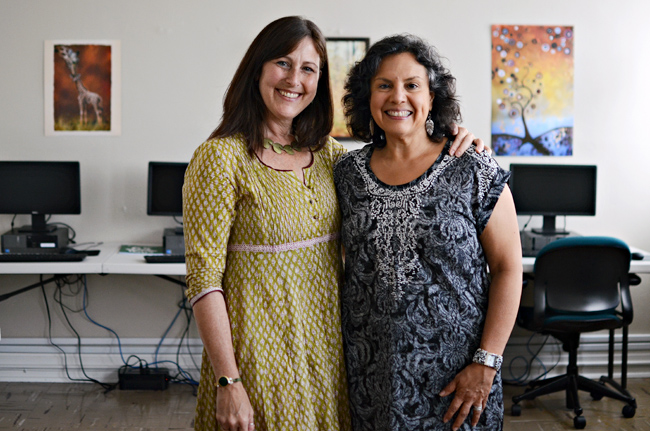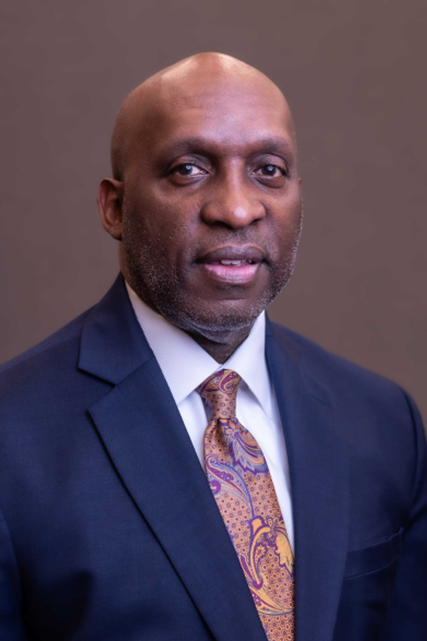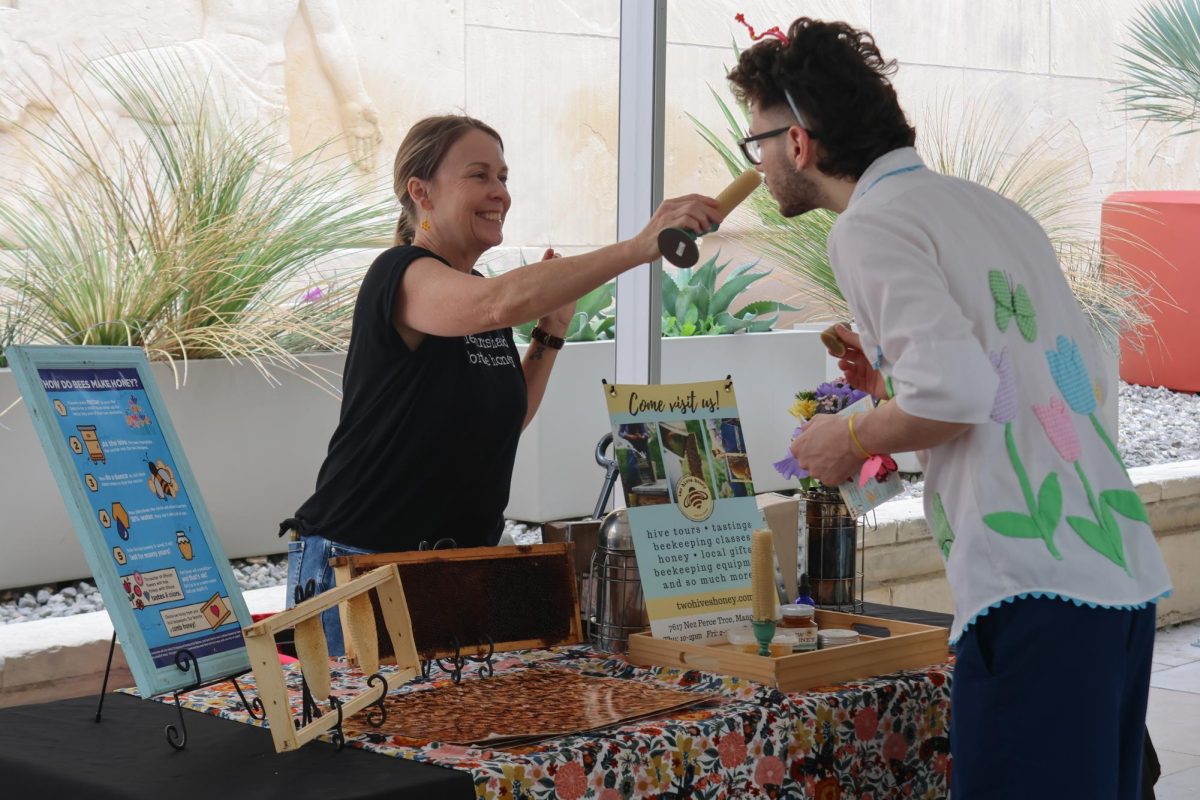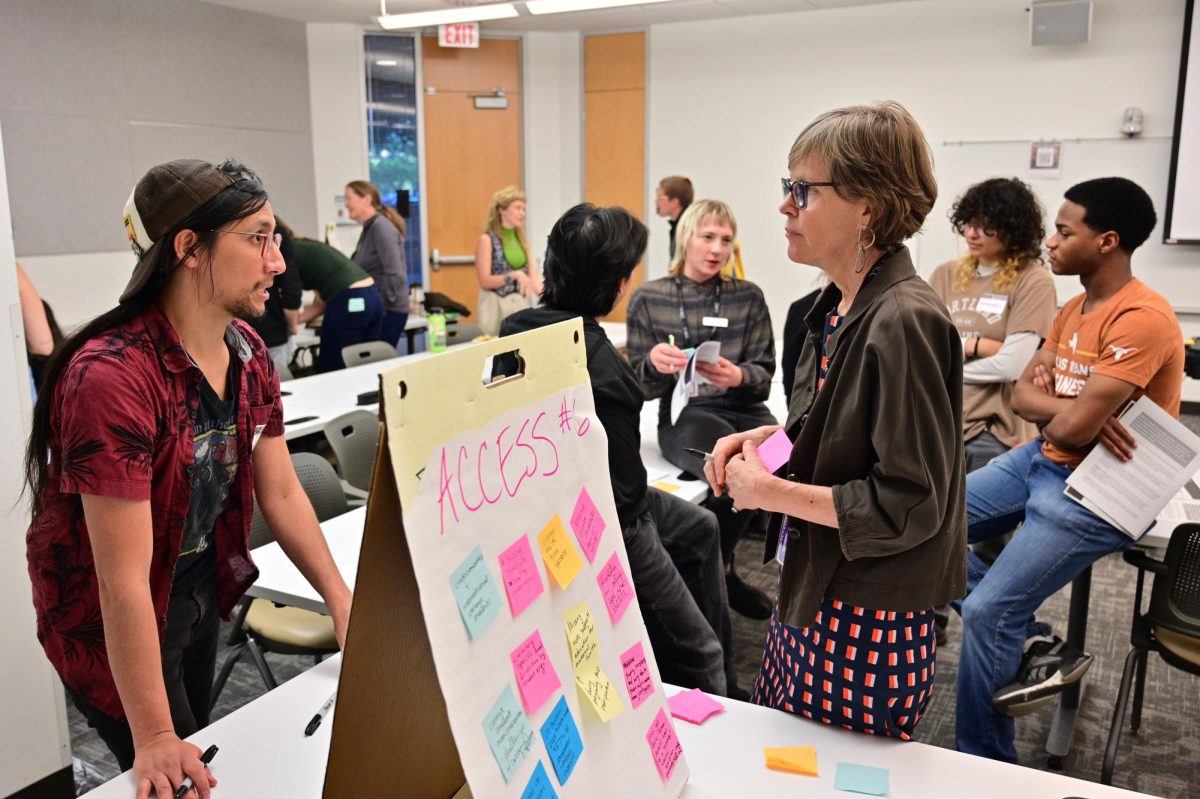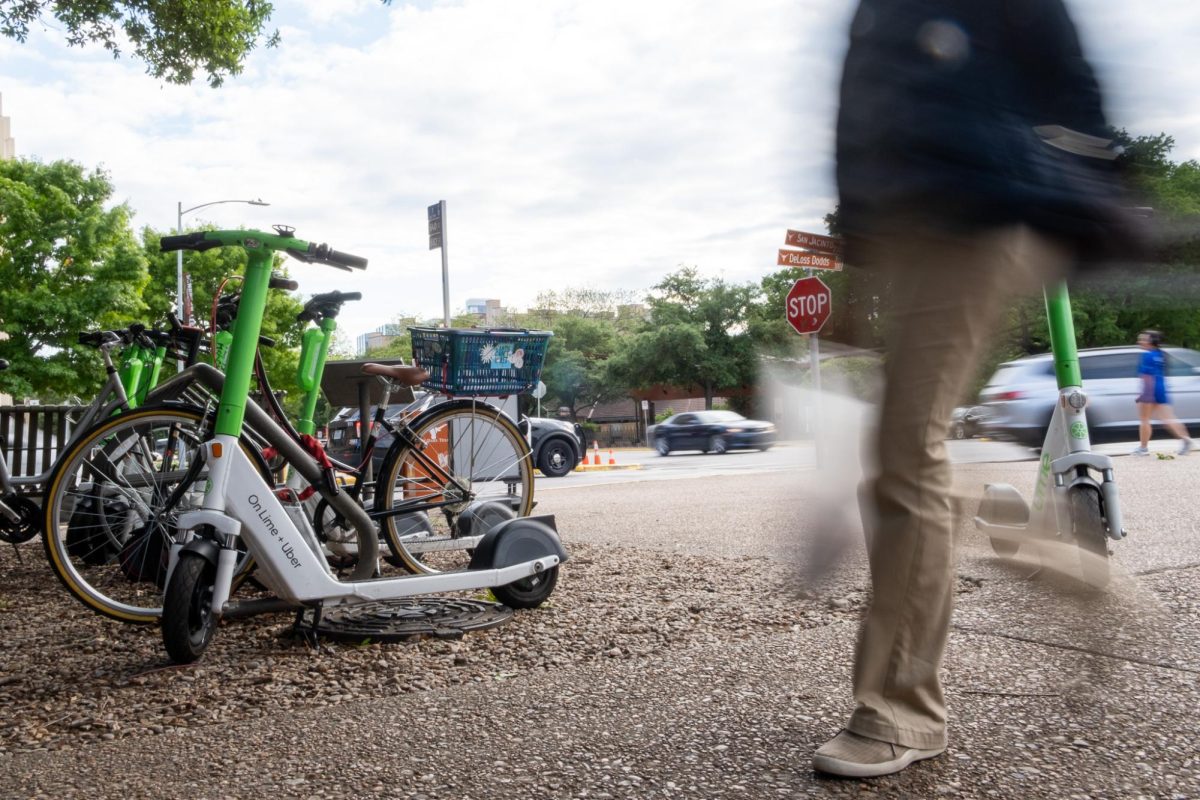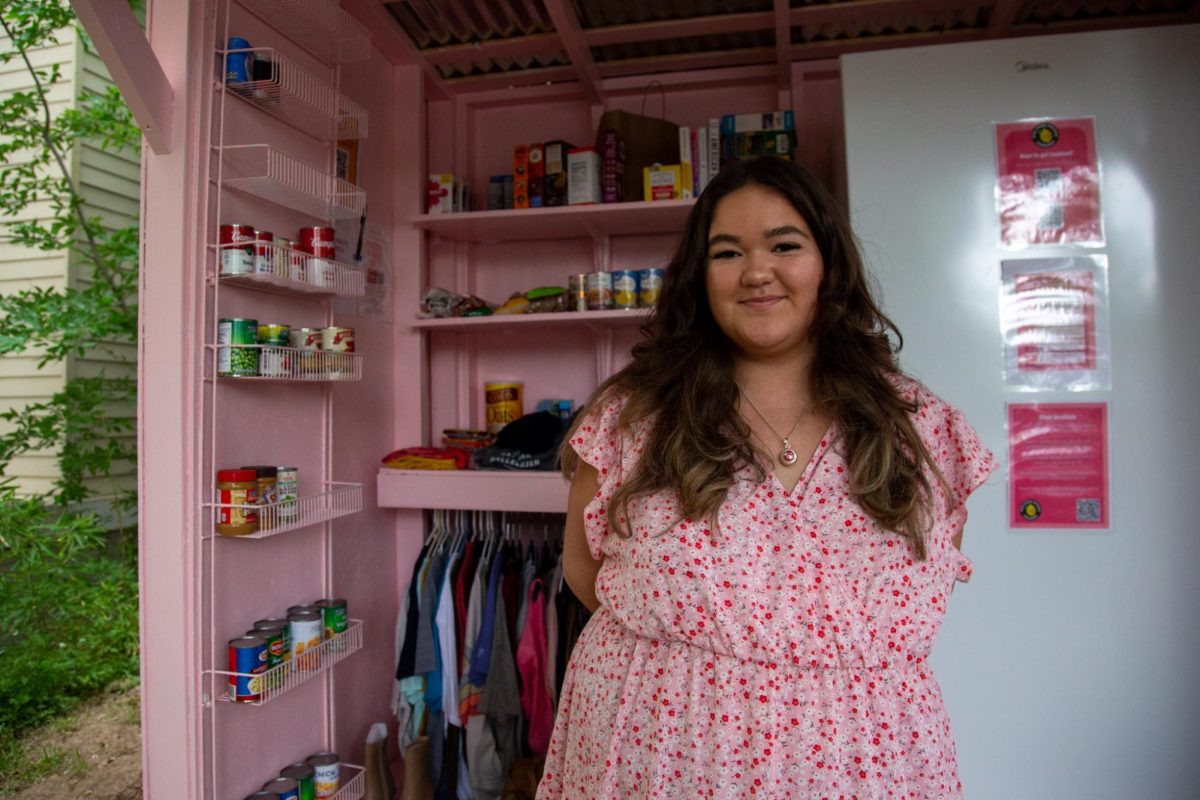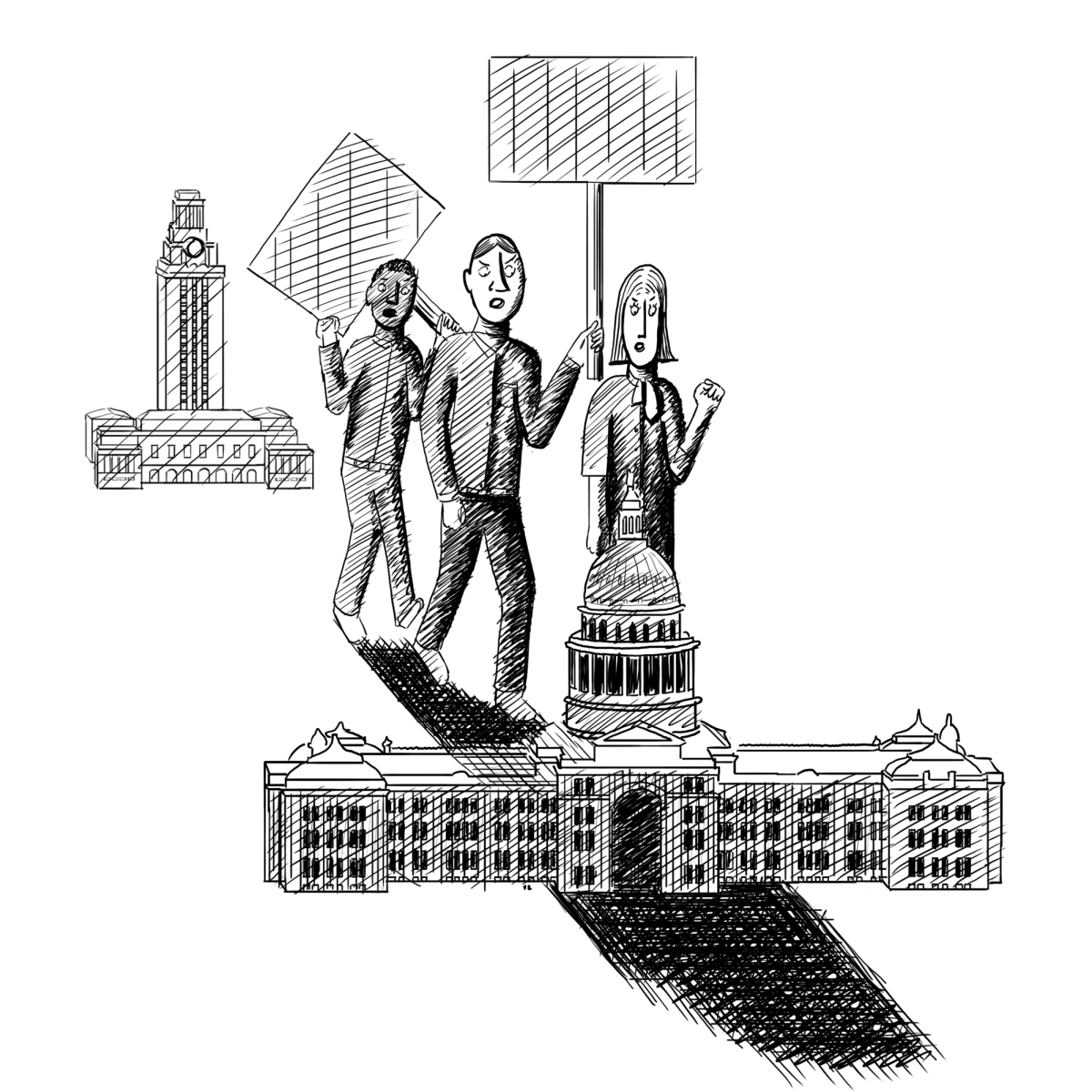Thirteen high school students in search of sobriety started their fall semester at Austin’s first recovery high school.
Located on the third floor of the University Christian Church, University High School opened on Aug. 25 to provide students who want to maintain sobriety with weekly online classes, peer support groups and mentorship from University students who have overcome addiction.
Lori Holleran Steiker, social work associate professor and co-founder of University High School, said research has shown more than 65 percent of students who have undergone treatment for substance addiction relapse promptly after returning to their former high schools. Becky Ahlgrim, executive director of University High School, said students who attended Houston’s recovery high school, Archway Academy, had an 87-90 percent chance of staying sober.
Holleran Steiker said University High School is modeled after Archway Academy and is meant to address the absence of safe environments in Austin for students who have completed treatment.
“We were in a pretty bad shape a few years ago,” Holleran Steiker said.
Although the University High School is not affiliated with the University, students from the Center of Students in Recovery — a University support group for students facing addiction — provide the high school students with mentoring. Holleran Steiker said mentorship can build confidence in the students who may have been stigmatized because of their substance abuse.
“Part of the recovery program says that you can’t keep it unless you give it away,” Holleran Steiker said.
Once students start attending a recovery high school, they usually continue the rest of their high school career there, according to Holleran Steiker. However, Ahlgrim said it can be difficult for students to leave their former high schools.
“It’s really hard to break away from bad crowds, and that’s why sober schools are relatively small,” Ahlgrim said. “There’s so much peer pressure to stay with your group.”
Mason Broussard, business sophomore and recovery coach at University High School, said his experience at Archway Academy changed his negative outlook on school and led him to attend UT. He said his work at University High School reminds him of the progress he has made since overcoming drug and alcohol addiction two years ago.
“It’s very rewarding,” Broussard said. “It’s cool to hear kids openly talk about enjoying school for the first time.”
Broussard said student mentorship programs can make students feel more secure when they are surrounded by people close to their age who can relate to their experiences.
“Recovery groups of older people that are talking about losing their lives to addiction or losing their jobs — they can’t relate to that,” Broussard said. ”But they can relate to adolescents who have faced a lot of insecurity or family issues and a lot of emotional or physical abuse.”



